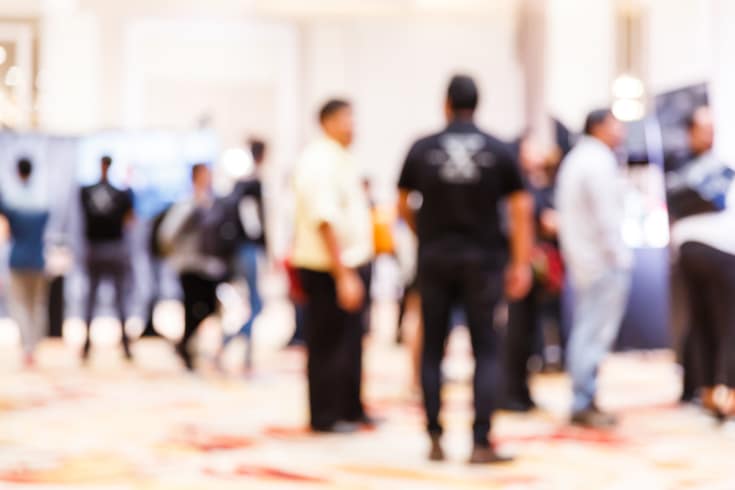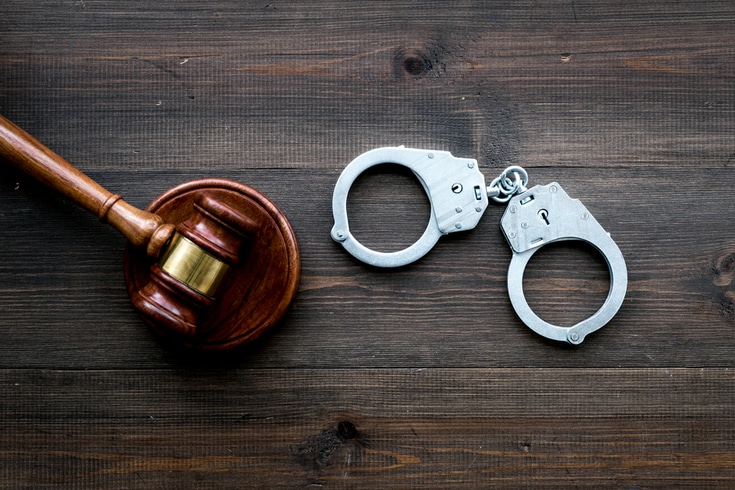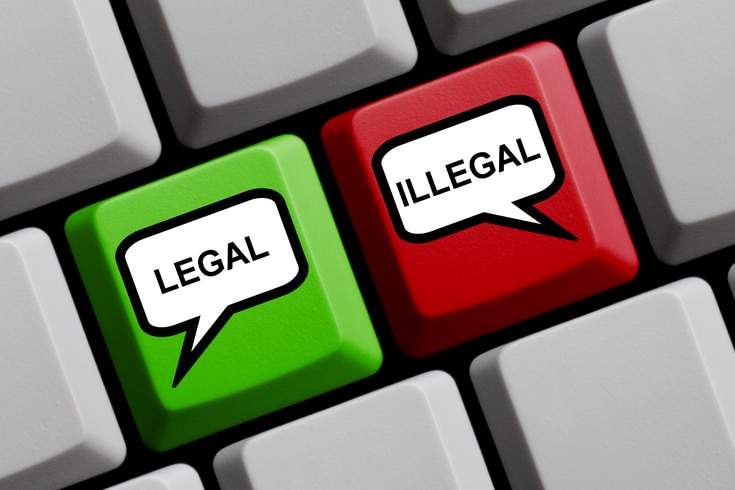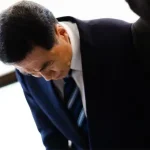Is Posting Cosplay Photos on Social Media a Violation of the Japanese Copyright Law? Explaining Cases That Could Lead to Legal Issues

Japan’s content industry is recognized as a major business boasting high popularity even overseas. Along with this, cosplay, where people dress up as personalitys from anime, manga, and games, is generating a lot of excitement both domestically and internationally, with events being held.
However, there are legal points to be careful of when posting cosplay photos on social media or using the photos taken for advertising.
In this article, we will explain the legal issues associated with cosplay.
Does Publishing Cosplay Photos Online Constitute Copyright Infringement?

Does the act of cosplayers taking photos in costumes of personalitys from anime and other media, and then posting these photos on the internet, constitute copyright infringement?
Do Characters Qualify as Copyrighted Works?
Copyright is a right that automatically arises from the creation of a work. The author can exclusively use the work based on this copyright.
When considering whether cosplay based on personalitys from anime and other media constitutes copyright infringement, it is necessary to first consider whether the personalitys themselves are recognized as copyrighted works.
It is important to note that under copyright law, something cannot be recognized as a “work” unless it is accompanied by a specific expression.
For example, the personality Mario brings to mind a cheerful and bright plumber with a mustache, wearing a hat and overalls.
However, these are all abstract concepts inherent to the personality itself and do not involve specific expressions. Therefore, the personality itself, being an abstract concept, is not recognized as a “work” under copyright law.
However, if a personality from anime or other media is depicted in an illustration, each illustration that includes a specific expression is recognized as a copyrighted work.
Since cosplay involves referencing these specific illustrations, the act of taking photos in cosplay and posting these photos on social media may potentially infringe on copyright.
In this article, we will refer to copyrighted works that include specific expressions, such as illustrations, as “personality designs”, distinguishing them from the abstract concept of the personality itself.
For more information on personality copyright, please refer to the following article.
Related article: Is there no copyright for personalitys? Basic knowledge for IP business
Highly Accurate Reproductions of Character Designs May Constitute Copyright Infringement
Cosplay based on personality designs from anime and other media may infringe on copyright, as mentioned earlier. Here, we will explain the risk of infringement in light of the specific content of copyright.
First, the act of taking photos in cosplay costumes may infringe on the right of reproduction as an act of copying the personality design without permission. In particular, if the costume design and makeup are faithfully reproduced to the point where it is indistinguishable from the personality design, the possibility of infringement of the right of reproduction increases.
However, if the cosplay costume is made for personal enjoyment and is used for private purposes, such as not posting the photos taken on social media, it does not constitute an exception to the infringement of the right of reproduction.
Next, the act of participating in events in cosplay costumes may infringe on the right of performance as an act of performing the personality to an unspecified number of people.
However, if the cosplay is shown to the public for non-profit, free, and unpaid purposes, it does not constitute an exception to the infringement of the right of performance.
Furthermore, the act of posting cosplay photos on social media and making them publicly available on the internet may infringe on the right of public transmission, as it allows an unspecified number of people to view the personality design through the internet.
Currently, many cosplay photos are publicly available on the internet, but this is only because the copyright holders are tacitly allowing it, and there may be legal issues. Therefore, if the copyright holder sues for copyright infringement for taking and posting cosplay photos, there is a possibility that the infringement will be recognized, so caution is needed.
For more information on the risk of infringement of intellectual property rights such as patents, trademarks, and copyrights, and their countermeasures, please refer to the following article.
Related article: What are the risks and countermeasures of infringement of intellectual property rights such as patents, trademarks, and copyrights?
Is it a No-Go for Companies to Use Cosplay Photos in Their Advertisements?

What potential issues might arise when a company, rather than an individual, uses cosplay photos in its advertisements?
In this article, we will discuss these issues in terms of the Japanese Copyright Law and the Unfair Competition Prevention Act.
Potential Cases of Copyright Infringement
The potential for copyright infringement when a company uses cosplay photos is similar to the issues that arise when an individual engages in cosplay (as previously mentioned).
However, it’s important to note that even if the purpose of a company taking cosplay photos is for internal use only, it may not be considered as private use, unlike when an individual takes the photos. This could potentially lead to copyright infringement.
Potential Cases of Violating the Unfair Competition Prevention Act
When using cosplay photos in advertisements, it’s necessary to consider whether this might violate the Unfair Competition Prevention Act.
The Unfair Competition Prevention Act is a law enacted to prevent unfair competition and protect the business interests and fair competition order of business operators.
Those whose interests are infringed by unfair competition can request an injunction against such acts.
They can also claim compensation for losses caused by unfair competition.
When using cosplay photos in advertisements, the issue is whether it falls under “acts of causing confusion with well-known indications” and “acts of unauthorized use of famous indications” among unfair competition acts.
What are Acts of Causing Confusion with Well-Known Indications?
Acts of causing confusion with well-known indications refer to actions that cause confusion, such as making or selling goods with indications identical or similar to those widely known to consumers as indications of others’ goods.
Even for personality designs, if a specific personality design is attached to a product, it may be recognized as an act of causing confusion with well-known indications, as it can be understood which company is providing the product.
For example, if clothing with a Mickey Mouse illustration is sold, it could lead to a misunderstanding that it is a product provided by Disney, and could be an act of causing confusion with well-known indications.
When using cosplay photos in advertisements, the point is how similar the personality design and the cosplay photo used in the advertisement are.
Various factors need to be considered to determine to what extent similarity constitutes an act of causing confusion with well-known indications.
What are Acts of Unauthorized Use of Famous Indications?
Acts of unauthorized use of famous indications refer to actions such as making or selling goods using indications identical or similar to famous indications, which have become highly reputable or famous due to long-term business efforts, as indications of one’s own goods.
Unlike acts of causing confusion with well-known indications, which require well-knownness, the use of “famous” indications that have permeated consumers is considered an act of unauthorized use of famous indications, regardless of whether confusion arises, as it could damage the brand image.
If the personality design that is the basis for the cosplay is a famous indication, using cosplay similar to this personality design for advertisements and the like could potentially be an act of unauthorized use of famous indications.
Examples Where Unauthorized Use of Costumes, etc. Was Considered an Act of Unauthorized Use of Famous Indications
There is a court case that recognized the establishment of unfair competition and ordered payment of damages, etc., in a case where the unauthorized use of costumes imitating a specific personality design became an issue (Intellectual Property High Court, May 30, 2019 (Reiwa 1st year)).
In this case, a kart rental company had its employees wear costumes of Mario, a personality from Mario Kart, and uploaded videos of users driving karts on public roads while wearing the costumes to YouTube.
In response to this, Nintendo Co., Ltd., the company that sells Mario Kart, sought an injunction against these acts and damages.
The court recognized that the personality designs of Mario and others are famous among consumers interested in games both in Japan and abroad, and judged that the act of lending costumes and posting videos of driving karts on public roads on YouTube constitutes an act of unauthorized use of famous indications.
For more details on the progress and issues of the trial, please refer to the following article.
Related article: Interim Judgment of Mario Kart Case and Intellectual Property Rights Infringement
Legal Issues for Cosplay Costume Sellers

There may be potential issues for cosplay costume sellers from the perspective of copyright law and the Japanese Unfair Competition Prevention Act.
Regarding copyright, the creation and online publication of costumes may infringe on reproduction rights and public transmission rights. Additionally, selling the created costumes to others could be considered an infringement of transfer rights, as it may be seen as unauthorized transfer of the personality to a third party.
Even if the cosplay costume sellers do not create the costumes themselves, actions such as knowingly selling costumes made without permission or possessing them for the purpose of sale could potentially be considered copyright infringement.
Especially in the case of costumes from squadron series or mascot costumes, which easily evoke the original personalitys, the likelihood of copyright infringement issues arising is high.
As for the Japanese Unfair Competition Prevention Act, actions such as displaying the original personality for the purpose of advertising costume sales, or posting photos of people wearing similar costumes, could potentially be considered unfair competition due to acts of confusion with well-known indications or unauthorized use of well-known indications.
If these laws are violated, sellers may face potential liabilities such as damages.
Legal Issues for Organizers of Cosplay Events

There is room to consider the legal issues for organizers of cosplay events from the perspectives of copyright law and tort law under the Japanese Civil Code.
Regarding copyright, event organizers are not themselves engaging in cosplay, nor are they in a dominant position where they control all the details of the cosplayers’ performances.
Therefore, even if the act of participating in events while wearing cosplay costumes is considered an infringement of performance rights, it is unlikely that event organizers will be recognized as infringing on these rights along with the cosplayers.
However, if copyright infringement is recognized for cosplayers, organizing a cosplay event could be seen as aiding such infringement, potentially resulting in liability for joint tort under the Japanese Civil Code.
Cases Where Cosplay Violates the Japanese Minor Offenses Act

Beyond copyright issues, there are cases where cosplay can violate the Japanese Minor Offenses Act.
Under the Japanese Minor Offenses Act, it is prohibited to wear uniforms or items resembling them that are prescribed by law without the proper qualifications.
Therefore, caution is necessary as cosplaying as a police officer or a Self-Defense Forces member, for example, could violate the Japanese Minor Offenses Act. Violations could result in detention in a criminal facility for one to thirty days or a fine of one thousand to ten thousand yen.
Summary: Consult a Lawyer for Copyright Issues Related to Cosplay
As discussed above, under current law, there is a possibility that cosplayers who post cosplay photos online, or companies that use cosplay photos in advertisements, may be infringing copyright or violating the ‘Japanese Unfair Competition Prevention Act’.
However, there are many gray areas in the legal issues associated with cosplay, and expert judgment is required. Therefore, if you need specific advice on individual cases, it is recommended to consult a lawyer who is familiar with copyright law and related matters.
Furthermore, with the recent expansion of cosplay culture, there is a possibility that the government may advance the establishment of rules regarding copyrights and other related matters for cosplay. Therefore, it is important to keep an eye on the trends in rule-making related to cosplay in the future.
Introduction to Our Firm’s Measures
Monolith Law Office is a legal office with high expertise in both IT, particularly the internet, and law. In recent years, overlooking information related to reputational damage and slander spread on the internet can lead to serious harm. Our firm provides solutions for managing reputational damage and online crises. Details are provided in the article below.
Category: Internet





















